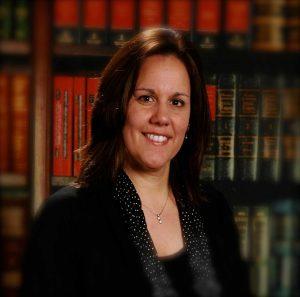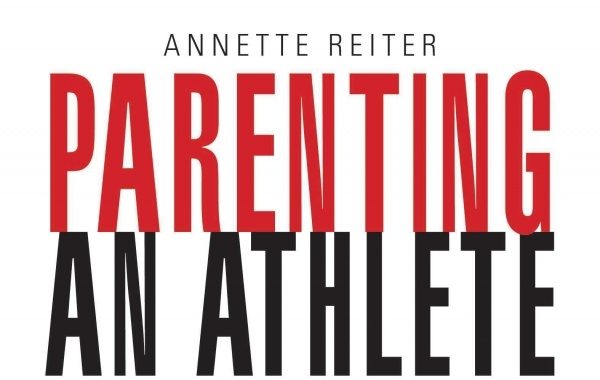 As a parent, longtime coach and former athlete, Sewell’s Annette Reiter knows that youth sports are a great avenue for teaching children life’s lessons. She is currently the assistant basketball coach at Rowan University and, for many years, was head coach for the TriState TarHeels youth organization. However, in her new book, Parenting An Athlete, Reiter points out that the line between encouraging your child and pushing him beyond his abilities can be easy to cross. Through personal anecdotes, tips and testimonials from parents and coaches, Reiter demonstrates how parents can develop happy, healthy and confident young athletes. She has chosen an excerpt from her book – including some parent and coach testimonials – for SJ readers.
As a parent, longtime coach and former athlete, Sewell’s Annette Reiter knows that youth sports are a great avenue for teaching children life’s lessons. She is currently the assistant basketball coach at Rowan University and, for many years, was head coach for the TriState TarHeels youth organization. However, in her new book, Parenting An Athlete, Reiter points out that the line between encouraging your child and pushing him beyond his abilities can be easy to cross. Through personal anecdotes, tips and testimonials from parents and coaches, Reiter demonstrates how parents can develop happy, healthy and confident young athletes. She has chosen an excerpt from her book – including some parent and coach testimonials – for SJ readers.
After this 2007 season with the TarHeels, I became obsessed with the role parents play in the attitude of the child, which in turn affects the dynamics of the team. I was beginning to see an increasingly negative attitude from parents at games toward coaches, officials and other players. I yearned to fully understand, in order to help me grow as a coach and become a better parent of my athletes. I needed to look back at my experiences as a player and understand the dynamics of parenting athletes in the ’70s and early ’80s compared to what I was seeing today.
I look back fondly at my formative years in athletics. It was a time when sports were, for the most part, only played in season. Sure you would practice and play pick-up basketball in the off-season but there were few AAU programs, few leagues, and little pressure to commit to only one sport and play it 12 months a year.
We played sports for the joy of competition and to have fun. There were pressures, though, to make the team. There were few teams around, so you would have a sense of pride in knowing you made your school team. There were no false pretenses that “everyone is good, at the same talent level,” and everyone has the right to play, no matter what. We learned that life is not always fair and you were not handed everything just because someone complained to a coach, teacher or an administrator. We received a trophy only if we won a championship, not just because we participated on a team. Our reward was being on the team.
There were expectations but they were not unreasonable. Any disappointment I felt was usually directed at myself for not playing as well as I could have, rather than at a coach or referee. If I did not feel things went well for me, the only control I had was to do something about it by practicing and trying to do better next time.
I learned this attitude from my parents, who instilled in me the need to do better for the betterment of the team, not just for myself. Whether our team won or lost was more important than how I played as an individual. I was on a team and team goals were always stressed. My coach would never allow a player to check the book after a game to see “how many points you had.” I do not think too many of us even thought of that. It was always about the team. When your parents and coach instill this in you, it becomes the norm. I loved basketball because to me it was the epitome of a team game – players working together for a common goal.
Let’s talk about my parents’ role and the role of most parents of my generation. My dad was my biggest supporter at this time. My mom was involved but since I was the third child of five, she was busy running the household. My dad took me to practices, but both my parents came to every game.
My dad was intense, and he wore his passion for sports on his sleeve. He grew up in South Philadelphia and he absolutely loved sports and the thrill of competition. Although intense, my father was a gentleman and he was a fair man with great character. He taught me a lot about accountability. Even with his overzealous demeanor at times, I never can recall him placing blame on someone else for my play. He was willing to help me develop into a better player by taking me out to our little basket above the garage to “become better.” He never gave me that easy out by placing blame on others for my poor performance, thus stifling my ability to improve.
I look back and have the utmost respect for and gratitude to my dad for being that role model who taught me that you must rise above adversities to be better than the next player. I can still hear him say, “No excuses. If you want it and it is not fair, then work harder than anyone else.” What great advice for a young athlete, a young mind searching to find the answers, not just with basketball but also with life. He was my role model, a great man and a great father who, through his own example of hard work, intensity, accountability and extreme unselfishness, paved the way for me to learn how to succeed.
“While I played high school and college sports, I never really thought about how special our parents were back then. But as I look back and I think about it, I have nothing but fond memories of my mother sitting in the stands or in the bleachers. I know that I was aware of her presence at all my games.
The picture back then was parents in the bleachers supporting the team and their own child. Team came first. They were separated from us by the boundary of the court/field. They never got overly involved. They respected the opponent, coaches and officials (even if a bad call was made) and in return, taught us so much by just sitting there appreciating the competitive nature of both teams and accepting the outcome of the game – an amazing concept that is all too forgotten today.
I feel fortunate to have played sports when it was so much easier. I often think that I would have more opportunities today versus the timeframe that I participated. However, I would not want to be an athlete today with the way people treat sports. I feel fortunate to have fond memories of the competition and the smell of the gym. I have fond memories of every second I competed on the court and field. I loved life when I was practicing or playing the game. That sound of your sneakers on the floor and the feel of your lungs burning made me realize that I was an athlete.
There was a desire to win and great efforts were put forth to accomplish your goals. Those efforts happened in the backyard or down at the playground, not necessary in an organized structure with parents attending. It was through pride that you made it happen. Never did you want to rotate off. I am not sure that kids today are afforded the privileges that we experienced by just going outside and making up games. Kids today do not get the opportunity to develop that intestinal fortitude, because if you don’t make a team, Daddy is going to complain and maybe fix it for you and get the coach fired. Makes for a weak world, if you ask me.” – KP, coach
“We as parents have expectations going into the season, and I think this is where we all fall into a trap. I’ve tried to learn not to expect anything but anticipate everything.
I also think one of the greatest difficulties is that it is not me playing down there, no matter how much I would like it to be, it’s my daughter. She is responsible and accountable for her play, not me, not the coach, not her teammates. When she plays well, she plays well, not me. When she plays bad, she plays bad, not me. But then why do I feel elated when she scores the winning basket and crappy when she turns the ball over? I’m a parent. I love her, and when our kids hurt, we hurt. When our kids rejoice, we rejoice. It’s a normal parenting side effect. The key, however, is not playing the “blame game.” She is accountable for her play, no one else. I will not get trapped by blaming anyone else for how my child plays.
In the end, it is just a game and if she is happy, healthy, having fun and, oh, doing great in school, there are no issues at all. My children’s careers have been filled with adversity, success, disappointment and joy – sounds a lot like life.” – MB, parent/coach
“The parent watching the child competing needs to enjoy the game. Parents need to keep the sports situation in perspective. In the end the child, not the parent, has to want it for herself. I wanted my children to be as good as they could be. I knew they could be better than they showed at times. But the child has to work hard for that. The child, not the parent, has to have the passion for the game.” – DM, parent











